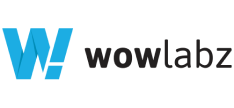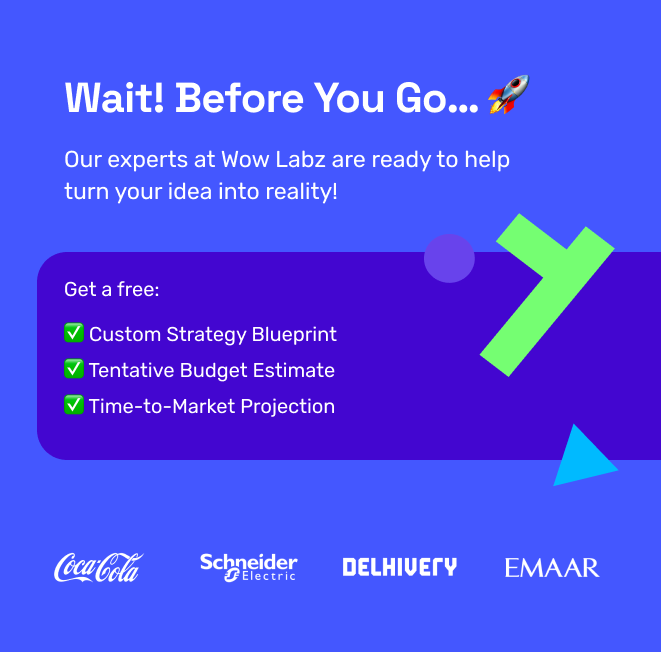Wondering if it’s time to build your own AI agent? You’re not alone. As of May 2025, around 60 to 68% of businesses are already using AI agents to handle everything from customer queries to automating internal workflows.
The AI agents market itself is growing fast — from $7.84 billion in 2025, it’s expected to reach $52.62 billion by 2030, growing at a powerful rate of 46.3% each year.
With this rapid growth, choosing the right AI agent development partner is no longer optional — it’s essential. AI agent development isn’t just about writing code or launching tools.
It’s about creating custom AI agents that can think, learn, and perform tasks with accuracy, while also integrating smoothly into your existing processes. Whether you’re deploying AI agents to automate repetitive tasks, handle user queries, or process customer data, your partner must understand both the complexity and the responsibility that comes with it.
Today’s AI agents are built on powerful foundations like large language models, machine learning algorithms, and neural networks. These agents are trained on diverse data sources and fine-tuned to meet specific user expectations.
They don’t just act — they adapt. From managing routine tasks to performing complex workflows, they’re designed to respond with human-like conversations using natural language processing and act autonomously when needed, all while maintaining precise control.
Behind every high-performing AI agent is a thoughtful agent development process. The right team knows how to implement AI agents that can scale, use the right mix of software libraries, and design agents with advanced agent capabilities.
In a time where companies are using AI tools to automate tasks, reduce human intervention, and improve agent performance, working with a team that can build, test, and optimize these agents with care is more important than ever.
So, how do you choose the right partner? In this blog, we’ll guide you through the seven most important questions to ask — so you can find someone who understands AI processes, coding agents, and everything in between, and who can help you build your own custom, intelligent agents that truly perform.
Why Choosing the Right AI Agent Development Partner Matters
AI agents are quickly becoming a core part of modern businesses. Whether it’s a chatbot that handles customer queries, a virtual assistant that supports employees, or an autonomous system that runs tasks in the background — these tools are changing how companies work.
In 2025, two major trends are shaping how AI agents are used:
- Hyper-personalization: AI systems are now smart enough to tailor experiences to each individual user.
- Multi-modal AI: These agents can understand and respond using voice, text, images, and more — all in one smooth interaction.
- But to make the most of these tools, one thing matters more than anything else: choosing the right development partner.
What Can Go Wrong with the Wrong Partner?
Picking the wrong team to build your AI agent can cause more problems than you might expect. Here’s how:
1. Solutions that don’t fit your needs
You might end up with an AI that sounds great on paper but doesn’t actually solve your real problems. For example, a chatbot that gives generic responses or a virtual assistant that’s too hard to use.
2. Systems that don’t scale
Your business will grow — but will your AI system keep up? If it’s not built to handle growth, you could face breakdowns, delays, or the need for a complete rebuild later.
3. Ethical and trust issues
AI must be built responsibly. If your system isn’t designed with privacy and fairness in mind, you risk losing customer trust. Think biased replies, data leaks, or systems that misuse personal information.
What You Gain with the Right Partner
Now let’s look at the upside. A strong, experienced AI partner can bring real, long-term value to your business:
1. Cost savings
Smart automation means your team spends less time on repetitive tasks — and that saves money.
2. Room to grow
A good partner builds AI that grows with your company. No need to start from scratch every time you scale.
3. Fresh ideas and innovation
You’ll get access to the latest tools and thinking, so your business stays ahead of the curve.
4. A real edge over competitors
When your AI is fast, smart, and ethical, your customers notice. That trust and efficiency can set you apart in a crowded market.
Building your first AI agent? Learn the key stages that take you from idea to launch. Explore here.
7 Key Questions to Ask When Choosing an AI Agent Development Partner
In 2025, AI agents are no longer just nice-to-haves. They’re becoming central to how businesses engage with customers, manage operations, and make decisions. Whether it’s a chatbot helping users on your website or a behind-the-scenes agent automating tasks, the partner you choose to build your AI will shape the outcome.
Here are seven essential questions to ask — and exactly what their answers should tell you.
1. What is Your Experience with AI Agent Development in Our Industry?
Why this matters:
AI agents perform best when they’re built for specific industries. A virtual assistant for a hospital can’t just be copied and pasted into a retail store. Each sector has its own challenges, language, regulations, and user expectations. In 2025, the trend is moving toward more specialized AI — solutions tailored for healthcare, banking, retail, logistics, and more.
What to look for:
Ask about projects they’ve done in your field. A good partner will be able to walk you through real examples, showing how they solved specific problems. Look for client case studies, testimonials, or internal tools they’ve developed for your industry. Their ability to connect technical work to real business impact in your space is a strong sign they understand what you need.
2. How Do You Approach Ethical AI and Bias Mitigation?
Why this matters:
AI systems can unintentionally cause harm when they reflect biases in the data they’re trained on. In 2025, ethics isn’t just a concern — it’s a legal and reputational requirement. With growing regulations like the EU AI Act and stronger consumer awareness, ethical AI development is critical to building trust and avoiding risk.
What to look for:
Don’t settle for vague claims like “We build fair AI.” Ask how they source and vet their data. Do they run audits to check for bias? What happens if a user flags an unfair response? Do they follow any specific ethical frameworks or global standards? A responsible partner will have a transparent and well-documented process — not just good intentions.
3. What is Your Development Process for Building Scalable AI Agents?
Why this matters:
Your AI agent might start small, but it won’t stay that way. As your business grows, you’ll need to handle more users, more languages, new channels, and deeper integrations. Without a strong foundation, scaling can become costly and complex.
What to look for:
Ask about their technical approach. Do they use agile development methods so they can adapt quickly to feedback? Are their systems built on cloud platforms like AWS or Azure that support flexible scaling? Can they easily integrate with your CRM, helpdesk, or other systems? Look for signs that their tech and team are ready to build something that grows with you — not something you’ll need to rebuild in six months.
4. How Do You Ensure Data Security and Privacy?
Why this matters:
AI systems often rely on sensitive data — from user chats to personal records to financial information. A data breach or misuse of private information can be devastating, both in terms of reputation and legal risk. With new privacy rules rolling out globally, security has to be built in from day one.
What to look for:
Ask what encryption standards they use. Do they have certifications like ISO 27001? How do they manage access control, audit logs, and secure API connections? Do they help you stay compliant with regulations like GDPR or HIPAA? Their answers should be clear, not overly technical or evasive. You’re trusting them with valuable data — make sure they treat it that way.
5. What Technologies and Frameworks Do You Use?
Why this matters:
AI moves quickly. New frameworks, tools, and models are released every few months, and staying current is essential to building high-performance, future-ready agents. In 2025, multi-modal AI is becoming standard — meaning agents can handle a mix of voice, text, images, and even video.
What to look for:
Ask which frameworks they use — like PyTorch, TensorFlow, or newer ones like JAX. Do they choose open-source tools that give you flexibility, or do they rely on closed platforms that could lock you in? Can their systems support voice input, video analysis, or image recognition if your use case evolves? The goal is to make sure they’re not just keeping up with trends — they’re building with them in mind.
6. How Do You Measure and Optimize AI Agent Performance?
Why this matters:
Once your AI agent goes live, its job isn’t done — in fact, it’s just getting started. You’ll want to know how well it’s performing, what users think of it, and how to improve it. In 2025, real-time analytics and continuous learning are the norm, not the exception.
What to look for:
Ask how they track success. Do they monitor accuracy, completion rates, and user feedback? Can they show you dashboards or reports on how the agent is doing over time? More importantly, what do they do when performance drops — do they have a process for making updates or retraining the model? The best partners don’t just launch and leave — they help you keep improving.
7. What Support and Maintenance Do You Offer Post-Deployment?
Why this matters:
AI agents need regular updates to stay accurate, secure, and aligned with your business goals. Whether it’s fixing bugs, tuning performance, or training your internal team, post-launch support plays a huge role in long-term success.
What to look for:
Ask if they offer ongoing maintenance and what it includes. Will they handle model retraining, security patches, or feature upgrades? How quickly do they respond to support requests? Do they provide clear service level agreements (SLAs)? Also, find out if they offer handover training so your team can manage parts of the system if needed. A strong support plan shows they’re thinking beyond the handoff.
How to Evaluate Responses to These Questions
Asking the right questions is only half the work. The real value lies in how you interpret the answers. A polished pitch can still hide gaps in capability, so it’s important to listen closely and evaluate responses with a critical lens.
Here’s a simple framework to help you do just that.
What to Look for in a Strong Response
Use this checklist to separate surface-level answers from those that show true expertise and alignment with your goals:
1. Specificity
Are they giving detailed, concrete examples? Or are they speaking in broad generalizations? Strong partners will name past clients (where possible), describe their process clearly, and explain how it applies to your context.
2. Evidence of Experience
Do they share real case studies, metrics, or tools they’ve used? Bonus points if they can demonstrate measurable results — like “reduced customer wait time by 40% using our AI assistant” instead of just saying “improved performance.”
3. Clear Alignment with Your Business Goals
Are they connecting their solution to your specific challenges and growth plans? The best partners will ask follow-up questions about your workflows, users, and long-term vision — not just talk about their tech.
4. Transparency and Process Clarity
Can they walk you through how their development, testing, and support processes work? A good answer will leave you with a clear picture of what working together will actually look like — timelines, tools, checkpoints, and team structure.
5. Future-Readiness
Are they up to date with current trends and tools? Look for references to emerging technologies like multi-modal AI, privacy-focused design, or low-code tools — all signs they’re building with tomorrow in mind.
Before you choose the right partner, it helps to understand what’s fueling the demand.
Read this blog to get to know Why Businesses Are Investing in AI Agent Development in 2025.
Red Flags to Watch Out For
Not all answers are created equal. Here are some warning signs that should give you pause:
1. Vague or Overly Generic Language
If the answers feel like they could apply to any company, in any industry, they probably aren’t grounded in real experience. Phrases like “we do everything” or “we use AI to improve results” are a sign they may not truly understand your needs.
2. Lack of Transparency
If they dodge questions about data sourcing, ethics, or technical limitations, it’s a serious concern. A strong partner won’t pretend they have all the answers — but they will be honest about what they know, what they’re working on, and where they stand.
3. Outdated or Overused Tech References
Mentioning old frameworks, ignoring trends like scalable cloud systems or multi-modal capabilities, or talking exclusively about legacy chatbot models might signal that they’re behind the curve.
4. No Post-Deployment Strategy
If there’s little or no mention of ongoing support, updates, or long-term maintenance, you risk being left with a tool that quickly becomes outdated. AI agents are not set-it-and-forget-it systems — they require constant tuning.
5. Lack of Metrics or ROI Thinking
If they can’t tell you how they measure success, they might not be thinking beyond deployment. A partner who builds for real-world impact will care about your KPIs as much as the model’s accuracy.
Final Thoughts
Choosing the right AI agent development partner isn’t just a technical decision — it’s a strategic one. As AI becomes more central to business operations in 2025, asking the right questions early on can save you from costly missteps later.
These seven questions are designed to help you uncover whether a potential partner truly understands your industry, builds responsibly, and has the tools — including a reliable agent engine, streamlined execution paths, and scalable architecture — to help you grow confidently.
Start with the Right Partner: Agentic AI Labz
If you’re looking for a partner who can confidently answer all seven of these critical questions — from ethical development to scalable architecture and post-deployment support — look no further than Agentic AI Labz.
At Agentic AI Labz, we don’t just build agents — we build long-term AI ecosystems that help organizations grow smarter over time.
Connect with us, ask us the tough questions, and see why we’re the trusted partner for forward-thinking companies building the future with AI.






